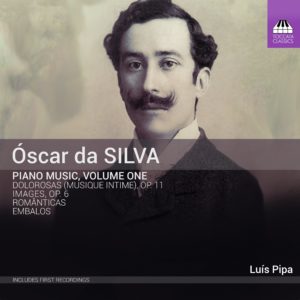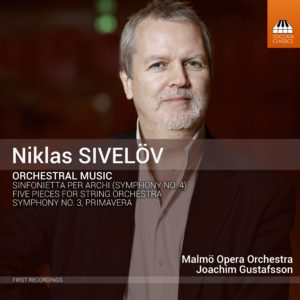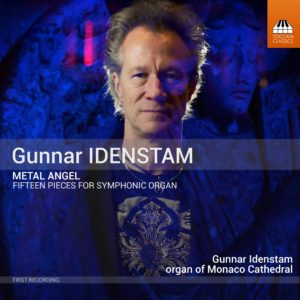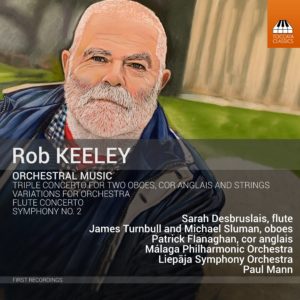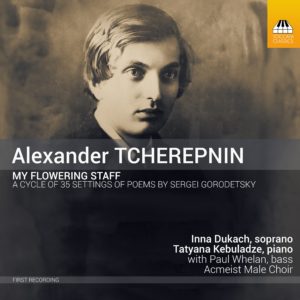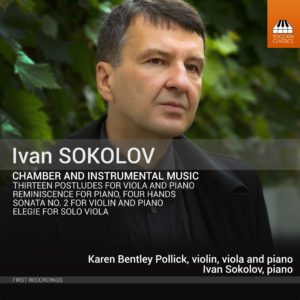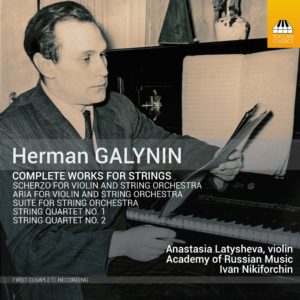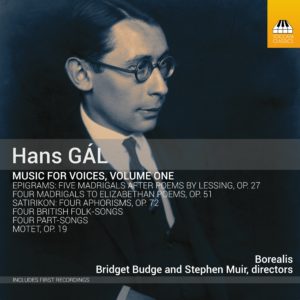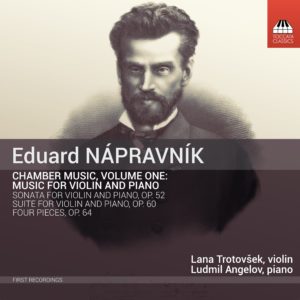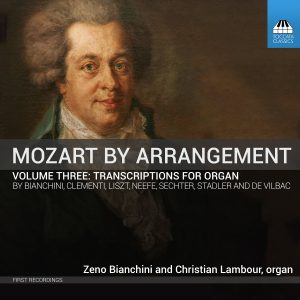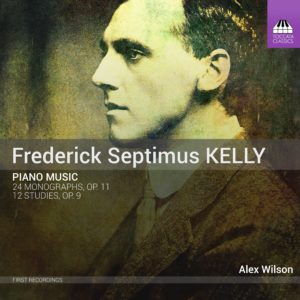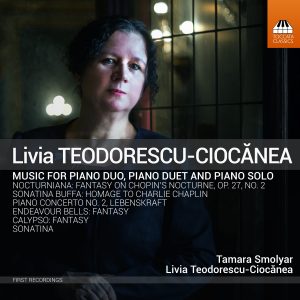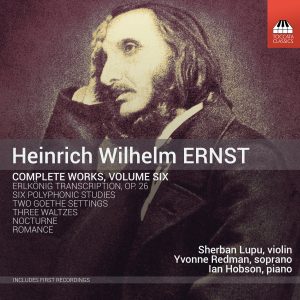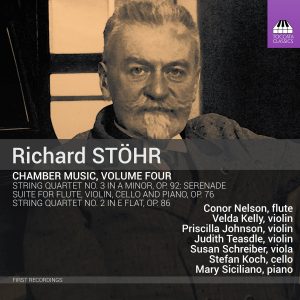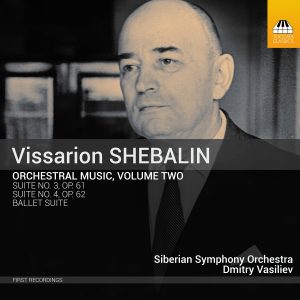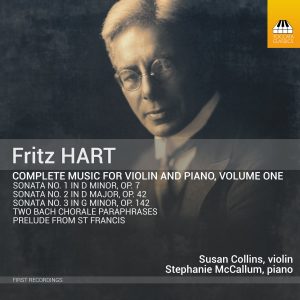Search Results for "Space Wolf: The First Omnibus mp3 torrent" – Page 30
Óscar da Silva: Piano Music, Volume One
The Portuguese composer and pianist Óscar da Silva (1870–1958) was one of the major figures in Portuguese and Brazilian musical life in the first half of the twentieth century He left an extensive legacy of compositions for his instrument, cast in a soft and sultry Romanticism somewhere between Chopin and Rachmaninov. All four of the collections recorded here concentrate on delicacy of tone-colour, expressing a particularly Portuguese sense of human emotion.
Luís Pipa (piano)
Niklas Sivelöv: Orchestral Music
Niklas Sivelöv (born in northern Sweden in 1968) is one of the leading representatives of the once-familiar tradition of pianist-composer that first achieved prominence with Mozart, Beethoven and Chopin and continued through Rachmaninov and Bartók. But Sivelöv also has a sizable, and growing, body of orchestral music to his name. These three recent works reveal a style that balances delicacy of feeling and freewheeling energy, with something of Stravinsky’s sense of rhythmic fun, the vernal vigour of Tippett, just occasionally the harmonic density of Ligeti, and the unusual awareness of light and dark that characterises the music of Sibelius and other Nordic composers.
Malmö Opera Orchestra
Joachim Gustafsson (conductor)
Gunnar IDENSTAM: Metal Angel
Metal Angel is a collection of eighteen pieces and a Symphonic Sonata for organ by Gunnar Idenstam, born in Swedish Lappland in 1961; this album presents fifteen of these pieces in a series of three suites. Written between 2013 and 2019, they exploit the full range of the modern symphonic organ to give musical expression to the idea of angels in a Gothic fantasy world. Idenstam’s distinctive musical language blends the physical energy of symphonic rock and metal and the modal cast of Scandinavian folk-music with an approach to the organ in the French cathedral tradition of such composers as Dupré, Vierne and Widor. This recording presents some of the most fiercely exciting organ music of recent years, in high-voltage performances by the composer himself.
Gunnar Idenstam, organ of Monaco Cathedral
First recordings
https://youtu.be/UNy-WjYYRlo
Rob Keeley: Orchestral Music
The music of Rob Keeley – born in south Wales in 1960 but immersed in London musical life since boyhood – embraces a wide range of influences. Stravinsky’s angular melodies and Tippett’s buoyant rhythms can be heard in the spiky but bucolic Second Symphony. Keeley readily confesses to an allegiance to Gallic Neo-Classicism in his Flute Concerto and, more surprisingly, reveals a taste for Telemann as the inspiration behind his Triple Concerto, with the ‘Enigma’ Variations of ‘my beloved Elgar’ acting as a model for Keeley’s own recent set of orchestral variations. Among the factors unifying these eclectic stimuli into an individual musical language are a concern for textural clarity and lightness of touch, a fondness for dance and a hint of good humour.
Sarah Desbruslais, flute (Tracks 5 – 6)
James Turnbull, oboe (Tracks 7 – 9)
Michael Sluman, oboe (Tracks 7 – 9)
Patrick Flanaghan, cor anglais (Tracks 7 – 9)
Málaga Philharmonic Orchestra (Tracks 1 – 9)
Liepāja Symphony Orchestra (Tracks 10 – 24)
Paul Mann, conductor
FIRST RECORDINGS
Alexander TCHEREPNIN: My Flowering Staff
In 1925–26 the French publisher Heugel brought out three volumes of 24 songs by the young Russian composer Alexander Tcherepnin (1899–1977), all setting poems by the ‘Acmeist’ Russian poet, Sergei Gorodetsky (1884–1967) – Tcherepnin’s Opp. 15, 16 and 17. Not until 2014, when Tatyana Kebuladze, the pianist on this recording, examined the composer’s manuscript in the archives of the Sacher Foundation in Basel was it realised that those three recueils were the tips of a much larger iceberg: a cycle of 35 settings of the 37 poems in Gorodetsky’s collection My Flowering Staff, plus an anonymous epilogue – one of the most extensive song-cycles in musical history. The songs themselves are audibly in the tradition of Tchaikovsky and other such Romantic Russian composers, but with a degree of psychological insight conveyed through the harmonic piquancy typical of the new century.
Inna Dukach, soprano (Tracks 1–16, 18-22, 24-37)
Tatyana Kebuladze, piano
Paul Whelan, bass (Track 17)
Acmeist Male Choir (Track 17)
FIRST COMPLETE RECORDING
*Due to an error in a track of this recording, a new edition of the CD of this recording will be pressed as soon as possible. The downloads do not have the error.
Ivan Sokolov: Chamber and Instrumental Music
Ivan Sokolov, born in Moscow in 1960, has made his mark both as composer and as pianist. His early compositions were avant-gardist, but he eventually rejected radicality in favour of a more traditional musical language, one with its roots in Tchaikovsky, Glazunov and Rachmaninov, flavoured, perhaps, with a hint of Shostakovich. Most of the works here were composed within the last few years and are couched in the unforced lyricism of his latter-day Romanticism.
Karen Bentley Pollick, violin, viola and piano
Ivan Sokolov, piano
First recordings
Herman Galynin: Complete Works for Strings
The intensity with which the Russian composer Herman Galynin (1922–66) lived his short life is reflected in the extraordinarily high voltage of his music. In spite of a difficult start in life – he was an orphan – his instinctive musicality combined with the impulsiveness of his personality to make him one of the best known of Soviet composers while he was a student. Although mental illness put an early end to his meteoric career, the wild, freewheeling energy of his compositions – as witness these five works for strings – leave little doubt that Galynin would have been one of the major musical voices of the second half of the twentieth century; as it is, what he did achieve is remarkable.
Anastasia Latysheva, violin (Tracks 1,2, 7-10, 11-14)
Academy of Russian Music (Tracks 1-6)
Ivan Nikiforchin, conductor (Tracks 1-6)
Arina Minaeva, violin (Tracks 7-10, 11-14)
Anastasia Bencic, viola (Tracks 7-10)
Kseniia Kharitonova, viola (Tracks 11-14)
Anna Scherbakova, cello (Tracks 7-14)
Includes first recordings
Hans GÁL: Music for Voices, Volume One
Whether in his original home of Vienna, as a conservatoire director in Germany, or as an émigré in Edinburgh, where he became one of the mainstays of musical life, Hans Gál (1890–1987) championed choral singing as a way of directly involving people in making music: he founded and conducted a number of choirs and provided an extensive output of choral compositions. This first volume in a long-term project to record his choral music presents a rich variety of works for a cappella voices, ranging from demanding eight-part choruses to charming folksong settings.
Borealis
Bridget Budge (1 –14, 19–22)
and Stephen Muir (15–18), directors
Eduard NÁPRAVNÍK: Chamber Music, Volume One: Music for Violin and Piano
The Czech-born Eduard Nápravník (1839–1916) became one of the pivotal figures in the musical life of nineteenth-century Russia: as conductor of the Imperial Mariinsky Opera in St Petersburg, he gave the premieres of some of the most important Russian operas, among them Musorgsky’s Boris Godunov, six by Tchaikovsky and nine by Rimsky-Korsakov. But his own music has largely been lost from sight – a fate it emphatically does not deserve, as these three works for violin and piano prove: big-hearted and big-boned, replete with passionate Tchaikovskian melody, they reveal a composer ripe for rediscovery.
Lana Trotovšek, violin
Ludmil Angelov, piano
First Recordings
MOZART BY ARRANGEMENT: Volume Three: Transcriptions for Organ
Until the advent of recordings, the way you got to know the music of the masters was to play them yourself. The expansion of domestic music-making at the beginning of the nineteenth century generated a huge market for arrangements, most of them for piano solo or duet. Mozart was an especial favourite, and this programme extends the basic premise by adapting some of those arrangements for organ, as well as presenting some contemporary arrangements and completions, recorded on an organ from Mozart’s own day.
Zeno Bianchini (Tracks 5–7, 13, 14, 17); primo (Tracks 1–4, 9–12, 15, 16); secondo (Tracks 8, 18)
Christian Lambour, primo (Tracks 8, 18); secondo (Tracks 1–4, 9–12, 15, 16)
Organ of the former Benedictine Abbey of Neu St Johann in St Gallen Canton, Switzerland
FIRST RECORDINGS
Frederick Septimus Kelly: Piano Music
Frederick Septimus Kelly, born in Sydney in 1881, was on the way to becoming one of Australia’s most important early composers when he was killed during the Battle of the Somme in 1916. His Twelve Studies and 24 Monographs are the most significant contributions to the Romantic piano literature by any Australian, although they have never been recorded in their entirety before now. The influence of Chopin and Skryabin is plain to hear, although the pastoral echoes of the gentler pieces suggest an affinity with his English contemporaries – men like Elgar, Ireland and Vaughan Williams – and the wild sweep of the more passionate numbers points to Kelly’s familiarity with the music of Brahms and Schumann. Each piece, though a ‘miniature’, contains a world of feeling and emotional resonance, suggesting that Kelly stood on the threshold of greatness.
Alex Wilson, piano
First recordings
Livia Teodorescu-Ciocănea: Piano Music
Piano music forms a large part of the output of the Romanian composer Livia Teodorescu-Ciocănea (b. 1959), as you would expect of someone who has been playing the instrument since she was four. This first album of her music reveals a latter-day Impressionist, sensitive to half-light and petal-delicate tonal colour – but she can also generate powerful surges of energy, and her musical portrait of Charlie Chaplin testifies to an impish sense of humour.
Tamara Smolyar, piano solo (Tracks 1, 3-4, 8) and piano primo (Tracks 2, 5-7, 9-11)
Livia Teodorescu-Ciocănea, piano secondo (Tracks 2, 5-7, 9-11)
Heinrich Wilhelm Ernst: Complete Works, Volume Six
Heinrich Wilhelm Ernst (1812–65) was one of the leading musicians of his day, a friend of Berlioz, Chopin, Liszt and Mendelssohn, and for Joseph Joachim ‘the greatest violinist I ever heard’. This sixth album – in a series of seven presenting all his compositions for the first time – begins and ends with some of the most difficult music for solo violin ever composed: Ernst’s Six Polyphonic Studies and his transcription of Schubert’s song, Der Erlkönig. Between them comes less familiar fare: five Schubertian piano pieces, and two settings of Goethe.
Sherban Lupu, violin Tracks 1-12, 20
Yvonne Redman, soprano Tracks 18-19
Ian Hobson, piano Tracks 13-19
Richard STÖHR: Chamber Music, Volume Four
Like Korngold, Toch, Schoenberg, Zeisl and Zemlinsky, Richard Stöhr (1874–1967) was another Austrian composer driven into American exile by the Nazis. His generous output of music, being rediscovered at last in these Toccata Classics recordings, includes seven symphonies, much chamber music, songs, and choral and piano pieces. These chamber works, from his first years in the United States, show him in surprisingly relaxed mood, the Viennese lyricism of his native city maintained in his US refuge.
Stefan Koch, cello
Conor Nelson, (Tracks flute 1 – 4)
Velda Kelly, (Tracks violin 1 – 4)
Priscilla Johnson, (Tracks violin 5 – 9)
Judith Teasdle, (Tracks violin 5 – 9)
Susan Schreiber, (Tracks viola 5 – 9)
Mary Siciliano (Tracks 1 – 4)
Vissarion SHEBALIN: Orchestral Music, Volume Two
Like his close friend and colleague Dmitry Shostakovich, Vissarion Shebalin (1902–63) knew a life of both celebrity and hardship: he was another of the composers condemned in the infamous 1948 Party congress in Moscow, and in later life he fought to overcome a series of crippling strokes. But his personality remained undaunted, as his music resolutely proves. This is the first recording of his Third and Fourth Suites and Ballet Suite, all three prepared from theatre music, and showing the lighter side of Shebalin’s symphonic muse, similar in style to the dance music of Shostakovich and Prokofiev. They have been recorded by the orchestra of his home town, Omsk, the capital of Siberia.
Siberian Symphony Orchestra
Dmitry Vasiliev, conductor
Fritz HART: Complete Music for Violin and Piano, Volume One
The composer and conductor Fritz Hart (1874–1949) led a peripatetic life: London-born, he moved to Australia to tour travelling productions of musicals there and in New Zealand. He soon became a formative figure in Australian musical life as teacher and conductor, but in 1936 left to become the first professor of music at the University of Hawai‘i and permanent conductor of the Honolulu Symphony Orchestra. Hart‘s three violin sonatas – poised but passionate – reveal a musical language influenced by Debussyan Impressionism but also coloured by his own Celtic roots.
Stephanie McCallum, piano
Susan Collins, violin
Stay In the Know
JOIN THE TOCCATA NEWSLETTER
"*" indicates required fields
By visiting our site, you agree to our privacy policy regarding cookies, tracking statistics, etc.
